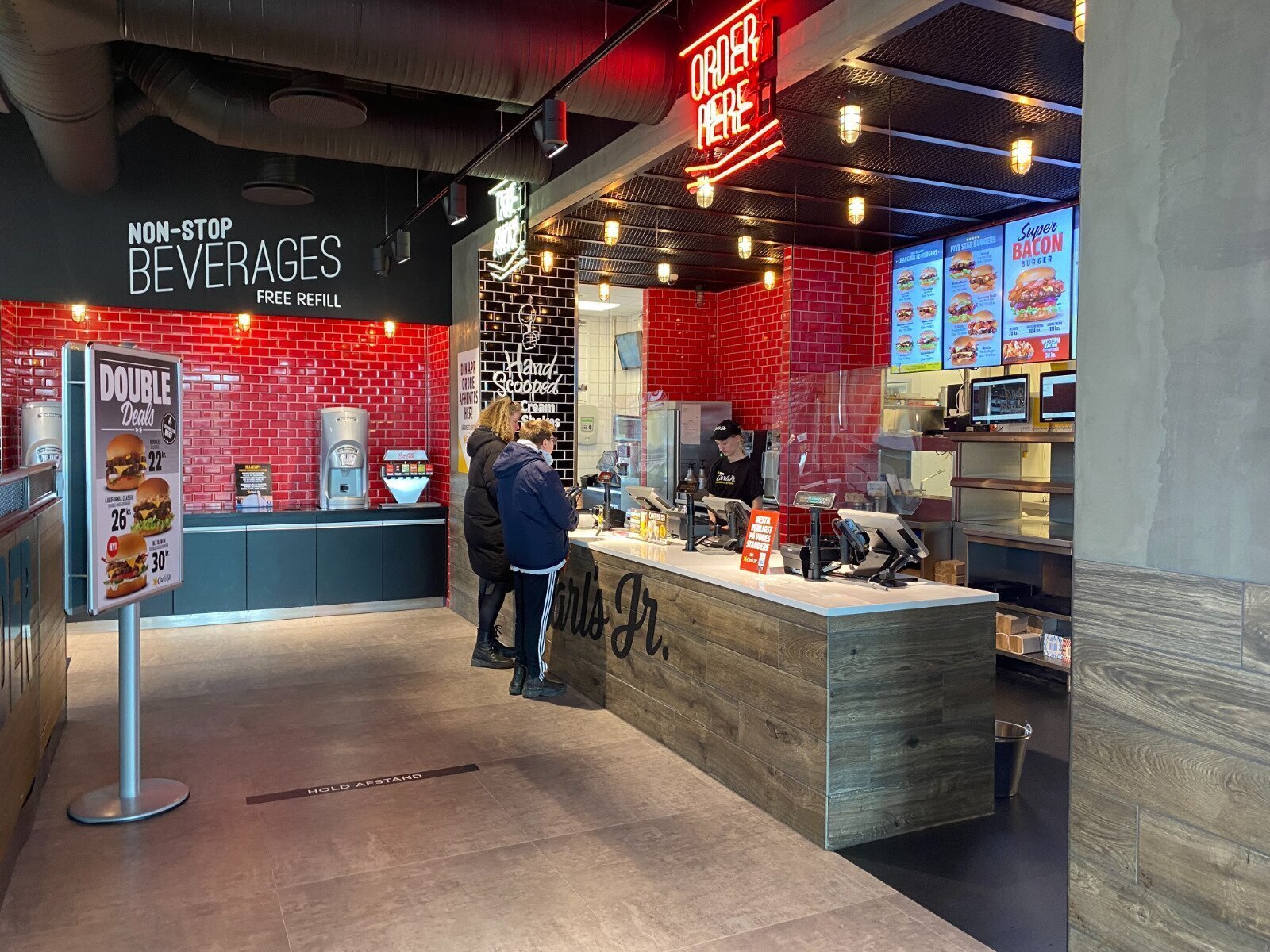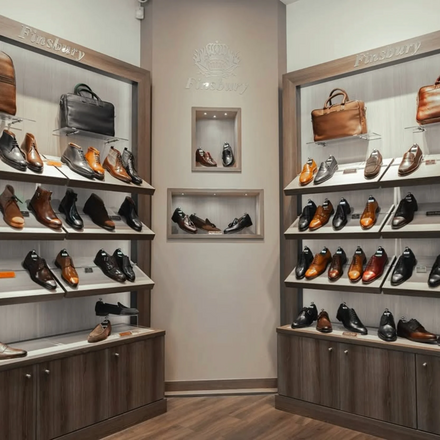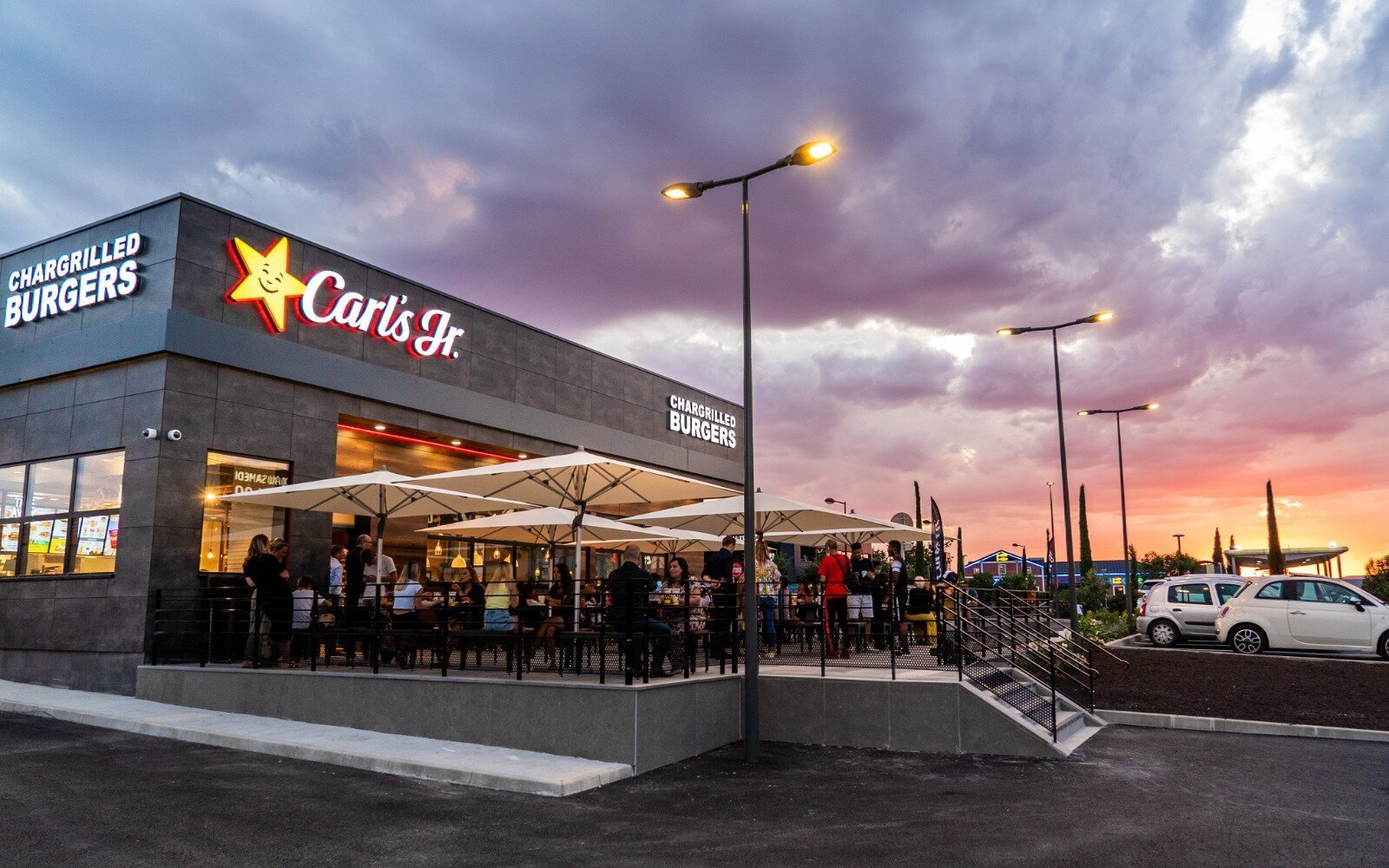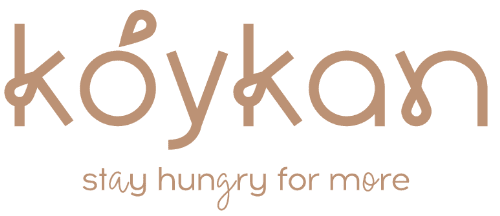Carl’s Jr. franchise

Carl’s Jr. expands its presence in Europe, providing franchise opportunities for investors interested in the quick-service restaurant industry.
Starting a Carl’s Jr. franchise requires a significant investment, reflecting the brand’s positioning in the premium fast-food segment. The initial investment ranges from $1.3 million to $2.1 million per restaurant, depending on location, size, and real estate costs. This includes franchise fees, equipment, leasehold improvements, and initial working capital. The franchise fee is $35,000 per location, with ongoing royalty fees set at 4% of gross sales and an additional 4% marketing fee. Franchisees must demonstrate a minimum net worth of $1 million, with at least $300,000 in liquid assets to qualify.
Expansion strategy and market presence
Carl’s Jr., owned by CKE Restaurants Holdings, operates over 1,000 international locations across regions including Europe, Latin America, and Asia. In Europe, the brand has a presence in countries such as Spain, France, and Denmark, with plans to expand into new markets. The company targets high-traffic urban areas, shopping centers, and travel hubs, focusing on markets where premium burgers have strong demand. Franchisees benefit from a brand with over 80 years of experience, strong operational systems, and global purchasing power.
Steps to becoming a franchisee
The process of opening a Carl’s Jr. franchise begins with submitting an application, followed by a financial and business background evaluation. Approved candidates undergo an interview process and must present a development plan outlining their market strategy. Once accepted, franchisees sign a multi-unit development agreement, committing to opening several locations within a designated area. Site selection is conducted with support from Carl’s Jr.’s real estate team, ensuring high-visibility and high-traffic locations.
Franchisee support and operational benefits
Carl’s Jr. provides comprehensive support to franchisees, covering site selection, restaurant design, staff training, and supply chain management. Franchisees receive a full operational training program at an existing restaurant, followed by on-site support during the launch phase. The company assists in marketing efforts, leveraging national and regional advertising campaigns, while also providing digital tools for localized promotions. In addition, Carl’s Jr. offers proprietary recipes, supply chain partnerships, and ongoing operational consulting to maintain brand consistency and efficiency.
Profitability and financial expectations
Revenue potential for a Carl’s Jr. franchise depends on market conditions, location, and operational efficiency. The average unit volume (AUV) for Carl’s Jr. restaurants is estimated between $1.4 million and $1.7 million annually. Profit margins vary based on labor costs, rent, and supply expenses, but well-managed locations typically achieve net profit margins of 10% to 15%. The expected return on investment period ranges from five to seven years, depending on site performance and regional market dynamics.
Long-term growth potential
The demand for premium fast food in Europe continues to rise, creating opportunities for Carl’s Jr. franchisees to expand in both existing and new markets. With a well-established brand, structured franchise system, and growing consumer interest in high-quality burgers, investing in Carl’s Jr. provides access to a proven business model with global recognition and long-term growth potential.
Featured franchises
No featured franchises
Other concepts from sector food and beverage
Breaking news
Show all
Expanding premium footwear through franchising
A French footwear brand expanding through franchising, offering structured entry into premium shoe retail with established operational standards.

Franchise model in sustainable water solutions
An international franchise network focusing on water generation and distribution technologies designed for commercial and residential markets.

Milano Cosmetics franchise overview
Milano Cosmetics offers a global franchise model for professional beauty salons with defined financial terms, operational support, and...

REFAN franchise network
REFAN is a European cosmetics and perfume manufacturer offering a standardized franchise model based on private-label production and retail.



